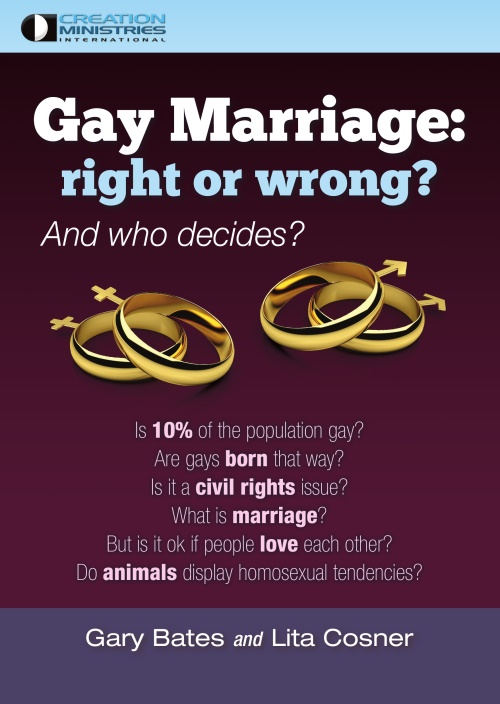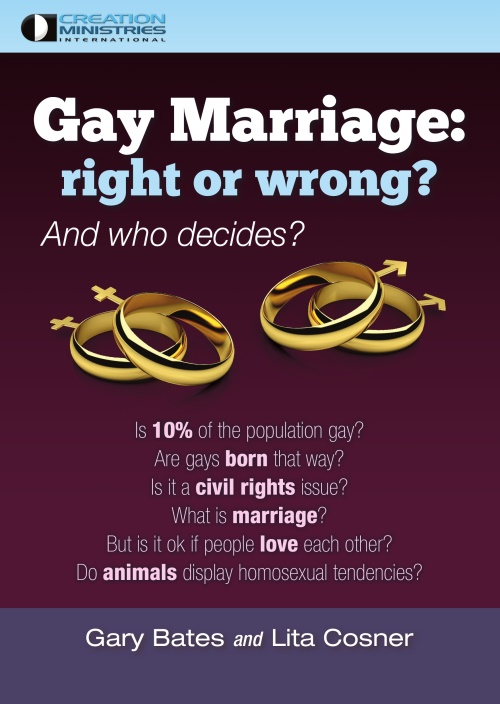Does the Bible really forbid homosexual relationships?

(Based on material from Robert A.J. Gagnon, Associate Professor of New Testament at Pittsburgh Theological Seminary.)1
For around two millennia, the church has held that the Bible prohibits all sexual activity outside of that between a man and his wife. In recent years, however, this view has been challenged, with some claiming that same-sex relationships, so long as they are consensual and loving, are not forbidden by any of the biblical passages dealing with homosexuality. Old Testament prohibitions in Leviticus, it is argued, relate only to the now obsolete Jewish ceremonial law rather than the moral law, and the incidents at Sodom (Genesis 19) and Gibeah (Judges 19) deal only with gang rape. Similarly, it is said that, in the New Testament, the apostle Paul condemns only exploitative same-sex relationships, such as pederasty, or homosexual activity associated with explicitly idolatrous worship. But do these claims really stand up to scrutiny?
The union of one man with one woman—a creation ordinance
Firstly, it should be noted how unambiguously Genesis sets forth God’s pattern for sexual union:
“But for Adam there was not found a helper fit for him. So the Lord God caused a deep sleep to fall upon the man, and while he slept took one of his ribs and closed up its place with flesh. And the rib that the Lord God had taken from the man he made into a woman and brought her to the man. Then the man said,
‘This at last is bone of my bonesand flesh of my flesh;she shall be called Woman,because she was taken out of Man.’Therefore a man shall leave his father and his mother and hold fast to his wife, and they shall become one flesh” (Genesis 2:20–25, my italics).
The message is unequivocal. Man is to be united to woman because she came from man. Man did not come from man and is not to be united to man; woman did not come from woman and is not to be united to woman. Therefore (NIV: “That is why”) male is to be united to female. Heterosexual marriage, then, is a creation ordinance.
In Romans Chapter 1, the apostle Paul teaches that homosexuality is God’s judgement upon those who have suppressed the truth about God and how His nature and will are revealed through His creation:
“For the wrath of God is revealed from heaven against all ungodliness and unrighteousness of men, who by their unrighteousness suppress the truth. For what can be known about God is plain to them, because God has shown it to them. For his invisible attributes, namely, his eternal power and divine nature, have been clearly perceived, ever since the creation of the world, in the things that have been made. So they are without excuse. For although they knew God, they did not honour him as God or give thanks to him, but they became futile in their thinking, and their foolish hearts were darkened. Claiming to be wise, they became fools, and exchanged the glory of the immortal God for images resembling mortal man and birds and animals and creeping things.
Therefore God gave them up in the lusts of their hearts to impurity, to the dishonouring of their bodies among themselves, because they exchanged the truth about God for a lie and worshiped and served the creature rather than the Creator, who is blessed forever! Amen.
For this reason God gave them up to dishonourable passions. For their women exchanged natural relations for those that are contrary to nature; and the men likewise gave up natural relations with women and were consumed with passion for one another, men committing shameless acts with men and receiving in themselves the due penalty for their error” (Romans 1:18–27).
It is difficult to miss the allusion to the first chapter of Genesis, especially when compared with the Greek of the Septuagint:
“And they exchanged the glory of the immortal God for the likeness of the image of a mortal human and of birds and four-footed animals and of reptiles” (Romans 1:23, Gagnon’s translation, italics added.)2
“Let us make a human according to our image and likeness; and let them rule over the birds … and the cattle … and the reptiles
… ” (Genesis 1:26, Gagnon’s translation of the Septuagint, italics added).2
Moreover, Paul’s use of the Greek words for ‘male’ and ‘female’ rather than ‘man’ and ‘woman’ again make clear that he is drawing from the Genesis text:
“Even their females [Greek thēleiai] exchanged the natural use for that which is contrary to nature; and likewise also the males [Greek arsenes], having left behind the natural use of the female [Greek thēleias], were inflamed with their yearning for one another, males with males [Greek arsenes en arsenin]” (Romans 1:26–27, Gagnon’s translation, italics added).3
“And God made the human; according to the image of God he made him; male [Greek arsēn] and female [Greek thēlu] he made them.” (Genesis 1:27, Gagnon’s translation of the Septuagint, italics added).3
These inter-textual echoes (Genesis ↔ Romans) make transparent that Paul’s indictment of homosexual acts is not concerned only with exploitative same sex relationships, or explicitly idolatrous sex, as some claim, but homosexual acts in general. This is because his objection to same-sex relationships is based on their being contrary to nature and a rejection of the creation ordinance, i.e. that sexual union was intended only for heterosexual couples. Moreover, the fact that the men “were inflamed with their yearning for one another” indicates that the sexual acts being condemned here were consensual.
The law as given by Moses
Secondly, there are two unambiguous prohibitions of homosexual acts in the book of Leviticus:
“You shall not lie with a male as with a woman; it is an abomination” (Leviticus 18:22).
“If a man lies with a male as with a woman, both of them have committed an abomination; they shall surely be put to death; their blood is upon them” (Leviticus 20:13).
Again, it cannot be argued that these refer only to exploitative or ‘idolatrous sex’ because the word translated “male” is the Hebrew zakar (male, i.e. adult man) rather than na’ar (boy or youth) or qadesh (homosexual cult prostitute). Moreover, Leviticus 20:13 clearly refers to consensual relationships as both parties are to be punished.
Some claim that these restrictions relate only to antiquated purity rules associated with the Jewish ceremonial law and therefore do not apply to Christians. This again, however, is unsustainable as the New Testament undoubtedly refers to these Levitical passages in its denouncing homosexual practices. This is particularly apparent in the apostle Paul’s choice of the Greek word arsenokoitai (men lying with males):
“Neither the sexually immoral, nor idolaters, nor adulterers, nor men who practice homosexuality [arsenokoitai], nor thieves, nor the greedy, nor drunkards, nor revilers, nor swindlers will inherit the kingdom of God (1 Corinthians 6:9,10).
“ … the law is not laid down for the just but for the lawless and disobedient, for the ungodly and sinners, for the unholy and profane, for those who strike their fathers and mothers, for murderers, the sexually immoral, men who practice homosexuality [arsenokoitai], enslavers, liars, perjurers, and whatever else is contrary to sound doctrine” (1 Timothy 1:9–10).
The word arsenokoitai is undoubtedly derived from the Greek words used in the Septuagint translation of Leviticus 18:22 and 20:13: arsēn (male) and koitē (lying). It is a term never found in pagan literature and, in choosing it, Paul can only have had Leviticus in mind. This makes clear that the Old Testament prohibition related to the moral law, not the ceremonial law. It is also significant that the word, aschēmosunē, used in Romans 1:27 (nakedness, indecent exposure, indecency), is used twenty-four times in the Septuagint translation of Leviticus 18:6-19; 20:11, 17-21 and the word, akatharsia, used in Romans 1:24 (uncleanness, impurity), appears in the Septuagint rendering of Leviticus 18:19; 20:21, 25.
Further confirmation that the Levitical passages refer to the moral law is found in the way the 1 Timothy passage echoes moral principles given to the Israelites in the Ten Commandments. Even the order in which they are listed is the same (Exodus 20 ↔ 1 Timothy):
| Commandment | 1 Timothy 1:9–10 | |
| Fifth | Honour one’s parents | “those who strike their fathers and mothers” |
| Sixth | Do not murder | “murderers” |
| Seventh | Do not commit adultery | “the sexually immoral” |
| Eighth | Do not steal | “enslavers” (literally “men-stealers”) |
| Ninth | Do not bear false witness | “liars”, “perjurers” |
Conclusion
Those seeking to overturn the time-honoured interpretation of Bible verses prohibiting homosexual acts must surely meet an extraordinary burden of proof. The key texts from both the Old and New Testaments, however, appear to offer no support for their view at all.
References
- Via, D.O. and Gagnon, R.A.J., Homosexuality and the Bible: Two Views, Fortress Press, USA, 2003, pp. 40–92. See also Gagnon’s notes, robgagnon.net/TwoViews. Return to text.
- Ref. 1, p. 77. Return to text.
- Ref. 1, p. 78. Return to text.





Readers’ comments
Comments are automatically closed 14 days after publication.